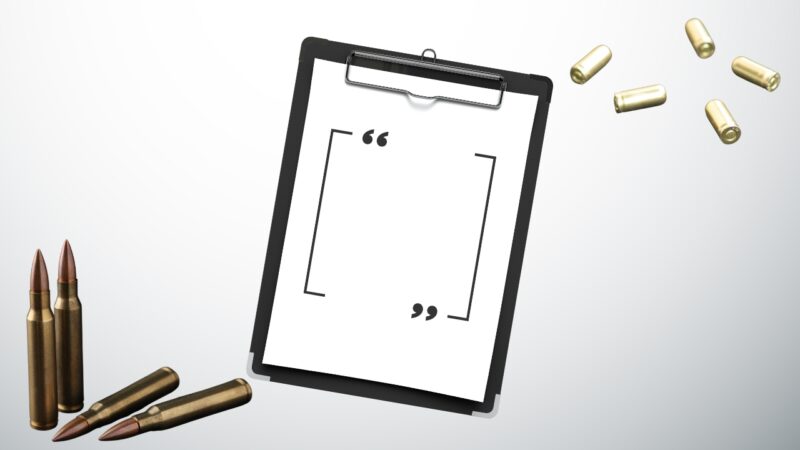Self-defense coverage isn’t just some boring legal jargon – it’s a crucial part of keeping yourself safe and ensuring you’re protected if you ever need to defend yourself. Without it, you could get into major trouble even if you were just trying to protect yourself.
I’m going to write about why self-defense coverage is so important and exactly how it works. I reached out to the experts over at Arms Directory, a group that really knows their stuff when it comes to using firearms safely, and got them to help me break it all down for you.
I’ll explain why it’s so crucial to understand the self-defense laws in your area, and take a look at different coverage options that can help keep you out of legal trouble if you ever have to defend yourself.
What Is Self-Defense Coverage?
Self-defense coverage helps protect you legally and financially if you ever have to defend yourself. Imagine you’re in a situation where you need to use force to protect yourself. This coverage steps in to help you deal with any legal problems that might come up afterward.
There are different kinds of self-defense coverage, like insurance policies and legal defense funds. Insurance for self-defense usually covers the cost of hiring a lawyer and going to court. Legal defense funds can also help pay for legal representation, but they work a bit differently than regular insurance policy.
Self-defense coverage serves as a safeguard, providing legal and financial protection in the aftermath of self-defense incidents. Its primary purpose is to shield individuals from the potential legal consequences and financial burdens associated with defending themselves.
Legal Implications of Self-Defense
The legal concept of self-defense is all about an individual’s right to protect themselves from imminent harm. In court, you can try to invoke self-defense if you reasonably believed that using force was necessary to prevent injury or even death.
But the application of self-defense can get tricky – it really depends on factors like how much of a threat you perceived and whether the amount of force you used was proportional.
Using self-defense without proper coverage can lead to some serious legal consequences. Even though the law acknowledges your right to defend yourself, if you execute it improperly or misjudge the situation, you could still end up facing criminal charges or civil liability.
Without the support of self-defense coverage, you might find yourself stuck with expensive legal fees, court costs, and potential damages that you’d have to pay out of your own pocket.
How to Obtain Self-Defense Coverage
Getting self-defense coverage is important if you want to stay safe and avoid legal problems. Here’s how you can do it:
1. Researching Options
Start by looking up different self-defense coverage options. Check out insurance policies, legal defense funds, and other plans that fit your needs. Think about what kind of coverage you need and what each plan offers.
2. Comparing Providers
Look at different companies that offer self-defense coverage. Check their reputation and read reviews from other people. Make sure to look at the details of what each plan covers, including legal representation and what extra services they offer.
3. Understand Your Coverage
Make sure you know exactly what each plan covers. Some plans might only help with legal fees, while others might offer more protection. Check if the plan covers both criminal and civil cases, court costs, and any damages you might have to pay.
4. Get Quotes
Contact the companies you’re interested in and ask for quotes based on your needs. Be honest about what you need so you can get accurate prices. Compare quotes from different providers to find the best deal.
5. Application Process
Once you pick a plan, start the application process. Fill out the forms accurately and provide any required documents. Be honest about your background, any firearms training you have, and any past incidents.
6. Factors Impacting Coverage
Things like your experience with firearms, your history of using them responsibly, and any past self-defense incidents can affect your coverage. Make sure to give all the relevant information to avoid problems later.
7. Renewal and Review
Check your coverage from time to time, especially when it’s time to renew your policy. Make sure it still meets your needs and update any information if things change.
Limitations and Exclusions of Self-Defense Coverage
While self-defense coverage is really helpful, it has some limits and exclusions. It’s important to know these so you’re not caught off guard if something happens.
- Acts of Aggression and Illegal Activities
Most self-defense plans won’t cover you if you act aggressively or break the law. You need to use force only when necessary and stay within the law to keep your coverage.
- Intentional Harm
If you intentionally hurt someone, your coverage probably won’t apply. It’s important to use self-defense responsibly and avoid situations where your actions could be seen as intentional harm.
- Pre-existing Conditions and Previous Incidents
Some plans might look at any past self-defense incidents or pre-existing conditions when deciding on your coverage. Be honest about your history to avoid problems with your coverage.
- Read the Fine Print
Make sure you understand the terms and conditions of your coverage. Read the policy documents carefully and pay attention to any details that might affect your coverage.
- Importance of Full Disclosure
When you apply for coverage, be honest and provide all necessary information. This helps ensure you get the right coverage and avoid issues when you need to make a claim.
You must understand the distinctions between single-shot and repeating firearms to ensure your coverage accurately reflects your firearm use.
Regular Policy Reviews
Review your self-defense coverage regularly to stay informed about any changes in terms, conditions, or exclusions. This helps you make sure your coverage still meets your needs and you’re protected.
Conclusion
In the end, having self-defense coverage is really important for staying safe and protected legally. When you know the rules and understand your coverage, and be prepared can help you handle self-defense situations responsibly.
Remember, being well-prepared makes you more secure and helps create a safer environment for you and those around you.













